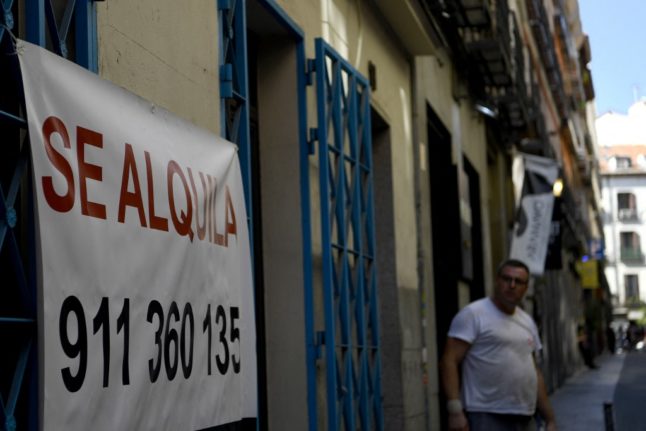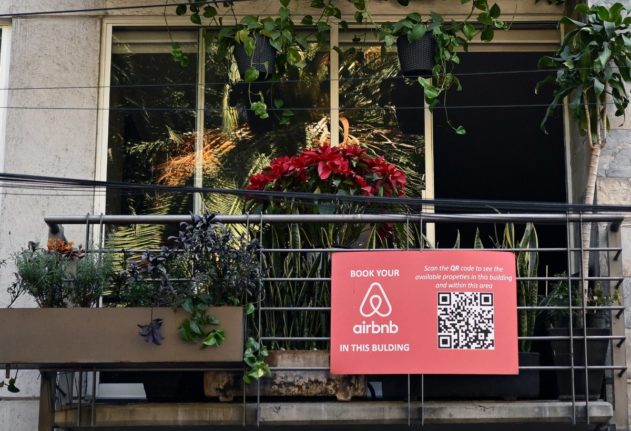As The Local reported last year, the Spanish government has created a ‘Bono Joven Alquiler’ (Youth Rental Bonus) to help young people with the rising cost of living and rental prices.
With inflation causing prices and rents to skyrocket in recent months, young people across Spain (both Spanish and foreign residents, more on that below) will be relieved to know that the money from the fund is now becoming available to claim, depending on where in Spain you are.
READ ALSO: Soaring energy prices push inflation in Spain up to 37-year high
The Local breaks down who’s eligible, for how much, and how to claim below:
‘El bono’
Back in January, Pedro Sánchez’s PSOE-led coalition government approved the Royal Decree 42/2022, which created the ‘Bono Joven Alquiler’ as part of a broader plan to increase access to housing between 2022-2025.
The ‘bono’ has a budget of €200 million set aside, and it is believed that over 70,000 young people will be able to claim up to €250 a month for a period of two years to help pay their rent.
READ ALSO: Spain to give young mid-income earners €250 monthly rental allowance
The fund has been welcomed by young Spaniards as the rental market in Spain places youngsters under particular pressure. According to a survey by Spanish property engine Fotocasa, 62 per cent of under 35s in Spain face financial obstacles when buying or renting a property.
And this forces them to stay at home longer, too: the average Spaniard leaves the nest at 29.5 years of age, the sixth latest bloomers in Europe, where the average age of emancipation is 26.2 years old.
So, what help is the government offering, and what are the terms?
How old do you have to be to claim?
Spaniards seem to be quite liberal with their understanding of ‘young’. You must be between 18 and 35 years of age to qualify for the bono support.
How much can you claim?
Each applicant is entitled to €6000 over two years, split into 24 monthly payments of €250.
Who’s eligible to claim?
In order to claim, you must satisfy a few basic criteria:
- Be a Spanish or European citizen or a third-country citizen with legal residency in Spain.
- The rental allowance must be used to pay rent, and nothing else.
- The maximum price of the rented property must not exceed €600, or €300 for a room. There are some exceptions, where total rents may be higher in some cases, depending on where you are, up to €900 or €450 per room.
- Your annual income must not be more than three times the value of the IPREM (‘Public Multiple Effects Income Indicator’ or Indicador Público de Renta de Efectos Múltiples, in Spanish) which is currently set at €24,318.84.
- However, according to the official government website, the IPREM calculation varies depending on your situation and family size: although it is three times the IPREM in general, it can be four times the IPREM for large families and people with disabilities, and five times for ‘special large families’ and people with more serious disabilities.
- All rents, whether for an entire property or private room, must be supported by a rental contract for the purposes of the application.
How can I claim?
Despite being a flagship policy of the coalition government, the administrative process is delegated to the autonomous communities. As is often the case in Spain, each regional government has a slightly different process, but the first to open up applications for the fund are Catalonia and Valencia.
If you are based in Catalonia, and meet all of the criteria above, you can access the application portal of the Generalitat here, and for the Valencian Community on its housing aid website here.
READ ALSO: Rent prices in Spain rising 30 times faster than wages
It is believed that some autonomous communities will retroactively cover rent payments dating back to January 2022, although it is suggested that you contact your region’s individual housing authority for more information.



 Please whitelist us to continue reading.
Please whitelist us to continue reading.
Member comments